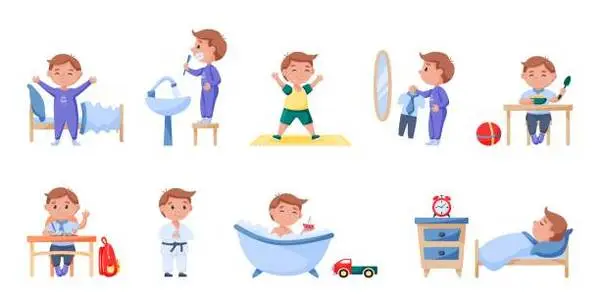Child discipline refers to the methods used by parents or caregivers to teach children appropriate behavior and help them learn self-control. It refers to the methods and techniques used by parents or guardians to teach children appropriate behavior and help them learn to follow rules. Effective child discipline should be consistent, fair, and appropriate for the child’s age and development. It should also focus on teaching children how to make positive choices, rather than just punishing them for misbehavior.
Some common child discipline techniques include positive reinforcement, setting clear rules and consequences, and using timeouts. It’s important for parents to understand that each child is unique and what works for one may not work for another, so it may require some experimentation and adaptation to find the best approach for their individual child. It can involve positive reinforcement, such as praise or rewards, as well as negative consequences, such as time-outs or loss of privileges.
The goal of discipline is to help children develop self-control and make good choices, while also fostering a positive parent-child relationship. It is important to use age-appropriate and consistent discipline methods, and to avoid physical punishment or verbal abuse.

Child discipline refers to the methods used to prevent children from engaging in undesirable behavior in the future. Discipline is defined as the imparting of knowledge and skill, or to teach. Discipline, in its broadest sense, refers to systematic instruction given to a disciple. Discipline means to instruct someone to follow a specific code of conduct.
Parents use discipline to teach their children about expectations, guidelines, and principles. Child discipline can include both rewards and punishments in order to teach self-control, increase desirable behaviors, and decrease undesirable behaviors. While the goal of child discipline is to instill desirable social habits in children, the ultimate goal is to foster specific judgment and morals so that the child develops and maintains self-discipline throughout their life.
In recent years, there has been increased discussion about the use of corporal punishment for children in general, as well as increased emphasis on the concept of “positive parenting,” in which desirable behavior is encouraged and rewarded. Positive discipline aims to teach, train, and guide children in order for them to learn, practice self-control, develop the ability to manage their emotions, and make desired choices regarding their personal behavior.
Many forms of child discipline have cultural differences. Shaming is a type of behavior modification and discipline. Discipline and shame are experienced differently by children raised in different cultures. In general, this is determined by whether the society values individualism or collectivism.
















